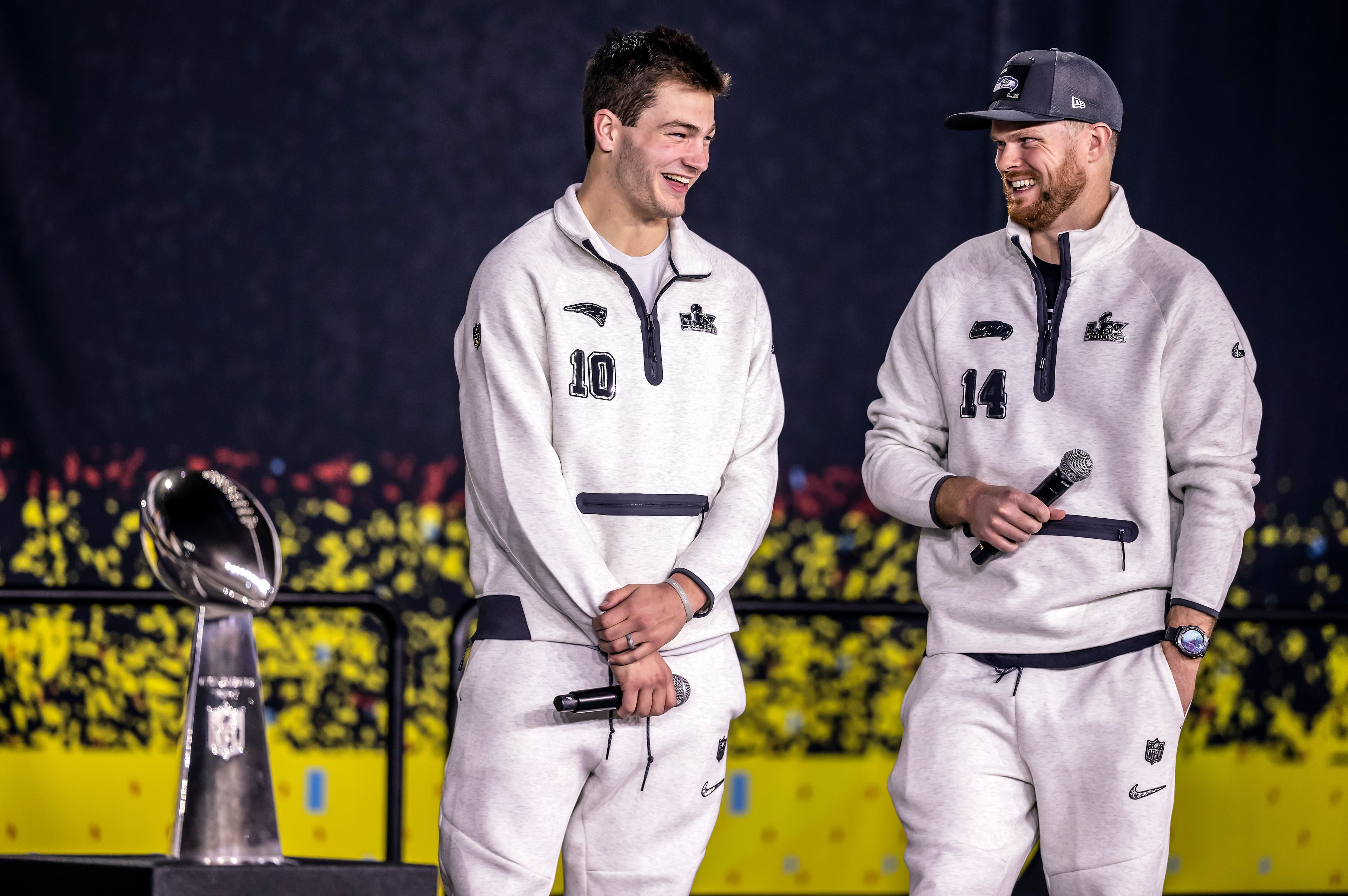Trades might be difficult to make during isolated NFL draft
To trade or not to trade?
An especially difficult question in this year's NFL draft?
The coronavirus pandemic has forced the NFL to conduct its annual draft remotely, which might reduce the number of times Commissioner Roger Goodell or anyone else announces a trade.
General managers around the league said this week the remote nature of the draft will change the way teams move up and down in the order next Thursday, Friday and Saturday.
Spur of the moment deals might be difficult to engineer with team officials at their homes and not in “war rooms” in their headquarters.
And if a communications connection is lost — IT guys have been working countless hours to make sure that does not happen — or a phone goes dead, what happens?
The more likely scenarios for trades are ones that are premeditated. Take for example, the Detroit Lions and New York Giants, who hold the third and fourth picks overall, respectively.
Both teams have been listening to offers this week, Lions GM Bob Quinn and Giants counterpart Dave Gettleman have said.
“It’s something I would very seriously entertain,” said Gettleman, whose team is in position to take a much-needed offensive tackle.
The Lions are listening, too. There has been talk of the Dolphins and others jumping up to No. 3 to grab a quarterback — or whatever.
“I think just the way the world we’re living in, with this being virtual, I think a lot of those things, if I’m going to do something, I think we’re going to have a pretty good idea Thursday afternoon of where we stand,” Quinn said. "I don’t think I’m going to be making a huge decision on trading the No. 3 overall pick while I’m on the clock, while I’m virtually talking to our head coach and our other personnel.”
Gettleman said the trade squeeze would be felt most after the second round. The first round is 10 minutes in length. The second is seven. Rounds 3-6 will fall to five minutes a pick. It drops to four minutes in the seventh and final round.
“It’s going to be tight to try to do that, to try to trade back or trade up,” Gettleman said of the final five rounds. “I think what’s going to happen, what this is going to force everybody to do, is do deals before their pick is up. So, let’s say ... one team calls another team and says, `I want to trade up.' They’ll make a deal off the clock, and then if the guy is there for the team that wants to move up, then they’ll consummate the trade. I think a lot of it is going to be done ahead of time.”
Philadelphia Eagles personnel director Howie Roseman said talks between teams have been no different this week than previous years.
“We all have each other’s phone numbers and we all have multiple phone lines,” Roseman said. “I think there will be the same level of communication because that doesn’t change."
If he wants to talk to Chiefs GM Brett Veach, he's just a call or text away.
Veach is in a new spot for this draft: The Super Bowl champions are bringing up the rear of the opening round.
He won't be alone at his home. The league allows him and every team to have an IT guy — and a security guard, perhaps to chase away fans who may not like a team's pick.
“One thing that I think every team is most concerned about is just the flow and the effectiveness of communication. If you’re on the clock and you’re working through your scenarios, then you finally come up with, ‘OK, we like this guy,'” Veach said. “(Or) we don’t like any of these trades. Or, we like this trade, and we want to do this trade. ... I think the scenario that we’re all kind of playing through our mind is when you’re on the clock and you’re about to turn a card in, and then with 45 seconds left, a team comes in and presents a really interesting trade.”
The NFL will conduct a mock draft on Monday to test whether teams can navigate those late-minute scenarios.
What seems certain is LSU quarterback Joe Burrow going No. 1 overall to Cincinnati, then Ohio State edge rusher Chase Young taken next by Washington. After that, how many times will Goodell announce a trade from home? Will fewer deals happen because of this year's draft dynamics?
No doubt, phones will be ringing for three days next week.
“If someone calls you up and their chart doesn’t match yours and they make an offer and you don’t think it’s a good deal, you don’t do it,” Gettleman said. “It’s that simple. If both groups are motivated, you’ll come to some kind of conclusion.”


